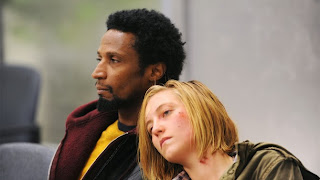A meditation on forgiveness and loss
"Before you embark on a journey of revenge, dig two graves." — Confucius
The history of the world has taught us much about the fate of those who can't forgive. The quote above from Confucius speaks to that wisdom. His meaning is, if you seek vengeance, be prepared to see yourself destroyed in the process.
Hate and anger burn deep in our souls and rob us of our lives, taking our joy and our chance at happiness. That's what makes forgiveness so powerful and so necessary.
One of my favorite movies from the past few years is "Devil." It's based on a script by M. Night Shymalan, but was directed by someone else. There is a supernatural element to the film that many focus on, but for me I thought it was a beautiful meditation on forgiveness. A central cop in the film lost his wife and child at the hands of a driver who then fled the scene. He was robbed of his family, and his quest for vengeance robbed him of his appreciation for life.
At the end of the film, he comes face-to-face with the man responsible for killing his family. It would be easy to imagine what he would do. He has the man in the back of his car, and they are driving alone. He tells the man, "That was my family on Bethlehem Pike. That was my son! I've been waiting for this moment for five years, all the things I would say to you, and the things I would do. The thing is I forgive you."
I was blown away and, honestly, moved to tears. In a moment when you thought he might finally take his vengeance, he instead chose to forgive. And you could see the weight lift from them both. But for the detective, the man who'd been consumed with hate and anger for years, there was a freedom that came from the forgiveness that, you could see, would alter the course of his life.
For the past 11 weeks, ABC has offered one of the most provocative shows of the season in "American Crime." It's not an easy watch, and it isn't highly rated, but it's been powerful. It's about a crime, yes, but more than that it's about how a single crime ripples through so many lives. Over the course of telling its story the show has explored racism, family dynamics, and poverty in America. It's been a powerful experience.
But Thursday's finale began with meditations on forgiveness and how important it is to living a healthy life. Sadly, Russ (Timothy Hutton) couldn't forgive, and more importantly he could never attain forgiveness from his family. He channeled his guilt, anger, sadness, and loneliness into a desperately violent act. He killed the man he thought killed his son, then himself. It set off a desperate chain of events that showed that a single crime could continue to claim lives even months and weeks after it occurred. That was the case for Russ.
There were precious few happy endings to find for those involved in the titular crime, but that's life. Crime has tentacles that spread long after the event is over. "American Crime" sought to shine a light on that and make us think more deeply about these things as a society. It's a shame more people didn't take time to check it out.




Comments
Post a Comment